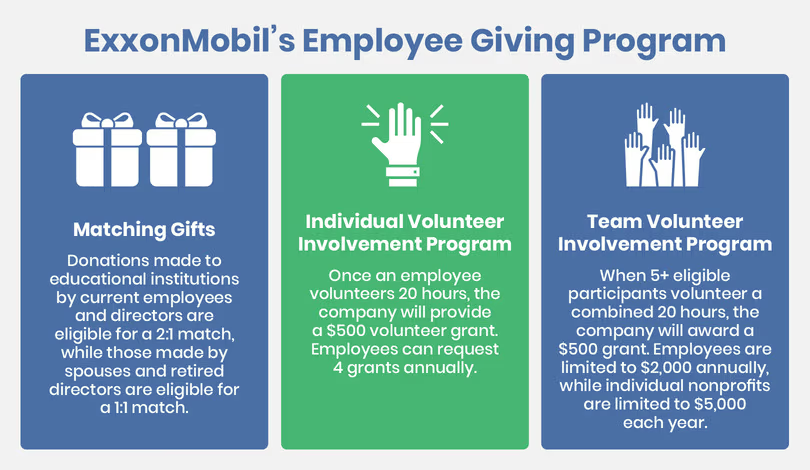The Function of Company Philanthropy in Fostering Sustainable Service Practices
Corporate philanthropy has actually arised as an essential strategy for businesses aiming to integrate sustainability into their operations. By straightening business purposes with environmental and social campaigns, organizations can promote much healthier environments. This method not only boosts corporate reputation yet also reinforces stakeholder relationships. The true level of its effect on lasting business success continues to be to be explored. What cutting-edge techniques are being taken on consequently?
Understanding Business Philanthropy and Its Significance
Company philanthropy acts as a necessary system via which companies can add to social well-being while boosting their very own reputations. This technique includes organizations assigning resources, such as funds, time, or experience, to support community efforts, charitable causes, or social programs. By engaging in philanthropic efforts, firms can deal with pushing social issues, such as education and learning, health and wellness care, and ecological problems, therefore playing a crucial duty in promoting positive change.
Company philanthropy can enhance staff member spirits and bring in ability, as individuals increasingly look for to function for socially accountable organizations. It can additionally reinforce customer commitment, as customers prefer brands that show a dedication to making a distinction. Eventually, comprehending the relevance of corporate philanthropy hinges on identifying its double advantages: enhancing area welfare while all at once enhancing organization trustworthiness and dependability in the eyes of stakeholders. This positioning of social responsibility with industrial rate of interests emphasizes its value in today's company landscape.
The Link Between Corporate Philanthropy and Sustainability
While numerous companies engage in philanthropy to enhance their public picture, a much deeper connection exists between business philanthropy and sustainability. Corporate philanthropy commonly lines up with lasting techniques by supporting initiatives that address environmental and social obstacles. When organizations buy neighborhood tasks, sustainable power, or instructional programs, they add to a healthier community and culture. This commitment not only promotes a good reputation yet likewise strengthens stakeholder partnerships, improving brand loyalty.

Case Studies: Successful Corporate Philanthropy Initiatives
Numerous firms have actually successfully integrated humanitarian efforts right into their business techniques, showing the tangible benefits of such commitments. Microsoft has introduced various programs, such as its AI for Earth effort, which supports ecological sustainability through modern technology. This technique not only aids preservation initiatives however likewise enhances Microsoft's track record as a leader in business obligation.
Similarly, Unilever's Sustainable Living Plan highlights ecological and social influence, aligning its philanthropy with company goals. By moneying jobs that improve health and hygiene, Unilever enhances its brand name while adding to international wellness.
One more remarkable example is Patagonia, which pledges 1% of sales to ecological reasons. This dedication reverberates with customers, fostering commitment and driving sales.
These study highlight that effective company philanthropy can yield economic returns while advertising lasting practices, enhancing the idea that ethical company methods are useful for both society and profits.
Structure Stronger Stakeholder Relationships Via Philanthropy
Philanthropy acts as a crucial device for companies looking for to strengthen Home Page their relationships with stakeholders, as it cultivates trust and shows a dedication to social responsibility. By taking part in charitable initiatives, organizations can get in touch with neighborhood communities, enhancing their track record and encouraging stakeholder commitment. This interaction typically causes meaningful interactions, producing a feeling of common worths in between the business and its stakeholders.
Furthermore, kind efforts can address particular area requirements, permitting companies to contribute positively to social obstacles. This involvement not just showcases a company's moral position yet additionally aids in attracting and maintaining consumers who prioritize social obligation.
Furthermore, workers typically feel a lot more determined and involved when they see their look at this site company actively getting involved in philanthropic tasks, causing a more productive workplace culture. Consequently, business philanthropy becomes a strategic avenue for building stronger, much more durable connections with diverse stakeholder groups.
Determining the Influence of Corporate Philanthropy on Service Success
The connection in between corporate philanthropy and stakeholder interaction sets the stage for reviewing its effect on total organization success. Organizations often measure this influence via different metrics, including brand name reputation, employee complete satisfaction, and client loyalty. Philanthropic campaigns can improve a company's picture, fostering trust fund amongst customers and capitalists alike. Moreover, engaged workers often tend to exhibit higher spirits and productivity, directly associating to enhanced organization efficiency.
Quantitative analysis can also be utilized, with organizations examining monetary returns versus humanitarian expenses. Research shows that companies with strong humanitarian commitments commonly experience higher stock efficiency and minimized volatility. Furthermore, qualitative assessments, such as stakeholder responses, can provide understandings into community assumptions and long-lasting relational advantages.
Ultimately, gauging the effect of company philanthropy requires a diverse method, integrating both quantitative and qualitative information to assure an extensive understanding of its influence on service success. corporate philanthropy.
Often Asked Concerns
Exactly How Can Local Business Participate In Business Philanthropy Efficiently?

What Prevail Misunderstandings Regarding Business Philanthropy?

How Does Business Philanthropy Influence Staff Member Spirits?
Business philanthropy positively affects staff member morale by fostering a feeling of purpose, enhancing job satisfaction, and promoting loyalty. Workers frequently really feel much more involved and motivated when their business contributes to social causes, creating a helpful workplace.
What Are the Tax Obligation Advantages of Corporate Philanthropy for Companies?
Business philanthropy supplies significant tax benefits for organizations, consisting of reductions on charitable contributions and prospective decreases in taxed earnings. These motivations encourage companies to take part in social efforts while concurrently improving their monetary standing.
How Can Business Pick Effective Philanthropic Partners?
Business can select reliable philanthropic companions by reviewing alignment with their values, assessing impact potential, checking out economic openness, and promoting strong interaction. This critical strategy enhances cooperation and assurances mutual advantages for both celebrations involved.
Business philanthropy offers as a crucial system with which companies can add to societal well-being while improving their very own reputations - corporate philanthropy. Inevitably, recognizing the importance of company philanthropy exists in identifying its dual benefits: improving area welfare while all at once enhancing service integrity and trustworthiness in the eyes of stakeholders. While numerous firms engage in philanthropy to enhance their public image, a deeper connection exists between company philanthropy and sustainability. The connection in between business philanthropy and stakeholder involvement sets the phase for evaluating its effect on total business success. Company philanthropy provides significant tax benefits for organizations, consisting of deductions on charitable payments and possible reductions in taxed revenue